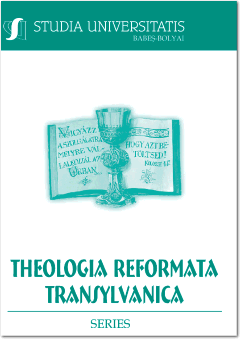AMIKOR (KOLLEKTÍV) BŰN VOLT MAGYARNAK LENNI A FELVIDÉKEN
WHEN IT WAS A SIN TO BE HUNGARIAN IN SLOVAKIA
Author(s): Alfréd SomogyiSubject(s): Christian Theology and Religion, Theology and Religion, Islam studies, Comparative Studies of Religion, Religion and science , Biblical studies, Sociology of Religion, History of Religion
Published by: Studia Universitatis Babes-Bolyai
Keywords: reformed church; Beneš decrees; deportations; population exchange; Czechoslovakia; nation-state.
Summary/Abstract: After the second world war, the plan was to create a nation-state from the renewed Czechoslovakia. The head of the state, Edvard Beneš’s intention was, to make the Germans and Hungarians, living in the country, disappear. He blamed these two nations, and the German and Hungarian minorities living in Czechoslovakia for the collapse of the country in 1938. The creation of a nation-state was supported by the Great Powers. In 1945, the Red Army liberated the former territories of Czechoslovakia and in the absence of a central government, Edward Beneš started to rule by issuing presidential decrees. He issued 143 decrees, amongst them those proclaiming the collective war crime of Germans and Hungarians, loss of their citizenship, confiscation of their properties, and it sent them to forced labour. This started their expulsion from their homeland. Hungarians were deported to Czech territory, then expelled to Hungary, finally forcefully resettled to Hungary in exchange for Slovaks living in Hungary. The plan was to "shift" 400.000 Hungarians to Hungary. In the end, 90.000 people were deported, out of them 50.000 of reformed religion. This paper deals with the effects of the deportations, resettlements from the reformed church’s point of view.
Journal: Studia Universitatis Babeș - Bolyai Theologia Reformata Transylvanica
- Issue Year: 62/2017
- Issue No: 1
- Page Range: 140-157
- Page Count: 18
- Language: Hungarian

